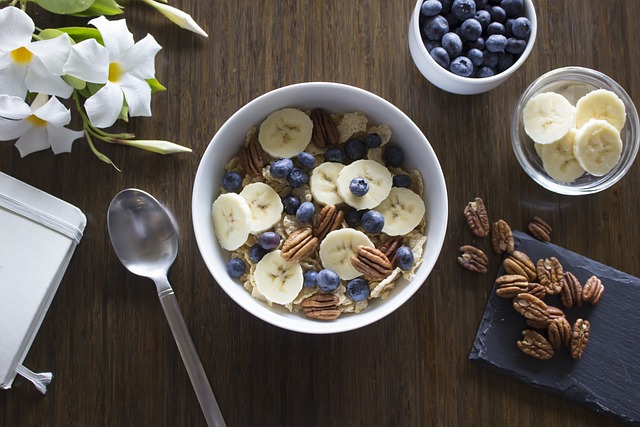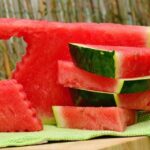Inflammatory arthritis known as gout can be managed and flare-ups prevented by making specific dietary choices. Opting for plant-based foods and avoiding purines can be helpful in symptom management.
The presence of excessive uric acid in the bloodstream can lead to the development of monosodium urate crystals in the joints, resulting in the onset of gout—a form of arthritis characterized by excruciating pain, tenderness, inflammation, and flushing.
Men are more commonly affected by gout; however, women over the age of 60 can also develop this condition. Gout episodes may start abruptly, often during nighttime, and may persist for a period of 1 to 2 weeks. The first 24 hours usually bring the most severe symptoms.
The big toe is frequently impacted by gout, with even the slight pressure of a blanket causing intense discomfort. If left untreated, gout has the potential to affect multiple joints throughout the body, impacting both the upper and lower extremities.
Your doctor can assist in creating a treatment strategy to handle gout outbreaks. This could involve modifying your eating habits and using drugs to prevent gout flare-ups. Certain edibles can elevate your uric acid levels and provoke an episode. Therefore, sticking to a diet that restricts specific meats, alcohol, beer, and sugar might aid in gout control.
Foods that trigger gout symptoms often contain purines, a chemical present in natural food sources. When purines are metabolized, they produce uric acid, which is eliminated from the body by people who do not have gout. This poses no risk to their health.
Individuals suffering from gout are unable to eliminate surplus uric acid effectively, which means that consuming a diet containing foods that raise uric acid levels can result in uric acid buildup. This, in turn, can elevate the probability of experiencing a gout flare-up.
Organ meats, red meats, specific seafood types, beer, and alcohol are examples of foods that have moderate to high levels of purines.
Purines can be found in certain vegetables, legumes, and beans. Nevertheless, it has been discovered that consuming high-purine plant foods does not cause gout attacks. A diet rich in vegetables, legumes, and beans is beneficial to one’s health and can aid in reducing uric acid levels.
Even though they don’t contain purine, fructose and sugar-sweetened drinks can still heighten the likelihood of gout and gout attacks by expediting various cellular processes, ultimately leading to increased uric acid levels.
An investigation involving 655 individuals revealed that the primary risk factor for early-onset gout was the consumption of sugar-sweetened beverages. Additionally, sugary drinks were linked to a greater burden of uric acid.
Conversely, studies indicate that uric acid levels can be reduced by consuming low-fat dairy products, soy products, and vitamin C supplements, which could help deter gout attacks. Before considering the use of vitamin C supplements, it is recommended that you consult your physician to determine whether they are appropriate for you.
It appears that uric acid levels are not impacted by the consumption of high-fat dairy products.
Your uric acid levels can be affected by the type of food you consume. Foods with high purine content such as beer and red meat can be converted to uric acid during digestion. Additionally, high intake of added sugars can increase uric acid production in your body.
The sections below delve into specific types of foods that may provoke gout based on available evidence.
Purines
The symptoms of gout may be exacerbated by purines found in both animal and plant-based foods since they are transformed into uric acid by the body. As a result, research indicates that consuming animal-derived foods containing high amounts of purines may elevate the likelihood of developing gout.
Consuming plant-based foods containing purines does not seem to cause the same impact. Moreover, the risk of gout may be lowered by consuming dairy products, vitamin C-rich foods, soy products, and specific plant oils.
Apart from meat and seafood, purines that can raise uric acid levels are also found in alcohol and foods with high fructose content, a type of simple sugar found in honey and fruit.
Purines are present in the foods listed below:
- red meats, such as beef, pork, and lamb
- organ meats, including liver and kidneys
- seafood, such as mussels, scallops, anchovies, sardines, trout, and tuna
- alcohol, especially beer
These foods should be limited or avoided by individuals who suffer from gout.
Fructose
Consuming foods that are rich in fructose can result in a reduction in adenosine triphosphate levels, causing an excessive generation of uric acid. Consequently, individuals diagnosed with gout should regulate their consumption of foods that have high levels of fructose, although this does not imply that they should eliminate fruits or honey from their diet; instead, they should eat them in moderate quantities.
It is advisable for individuals to refrain from consuming sugary soft drinks and processed food items that contain high fructose corn syrup.
Carbohydrates
Carbohydrates have the potential to contribute to insulin resistance due to their sugar content, which can result in elevated blood sugar levels. This association has a significant impact on one’s uric acid levels. The glycemic index (GI) score is assigned to all carbohydrate-containing foods and measures their impact on blood sugar levels.
According to research findings, individuals suffering from gout may want to restrict their diet to food items with low GI scores. Such individuals are recommended to limit their consumption of high-GI carbohydrate foods, such as:
- most breakfast cereals
- fruits such as pineapple, bananas, watermelon, grapes, and mango, as well as fruit juices
- starchy vegetables, such as potatoes, corn, winter squash, and parsnips
- rice
- most white breads
- snacks such as cookies, donuts, chips, pretzels, cakes, and pop tarts
Sugary beverages and sauces are other food items that one should restrict due to their high GI scores and carbohydrate content. It is advisable to steer clear of white flour-based foods.
Your doctor or dietitian may advise you to adopt a healthier eating pattern to alleviate gout symptoms. A nutritious diet for gout usually consists of ample servings of legumes, whole grains, fruits, and vegetables, offering a wide range of options in each category.
It is recommended to switch to a different diet rather than simply incorporating some gout-friendly foods into your current diet, particularly if you consume foods that are rich in saturated fat and processed carbohydrates. The DASH diet and Mediterranean diet, both of which promote heart health, are beneficial for gout management.
To follow these diets, one would opt for vegetables, fruits, and whole grains over foods that contain a high percentage of saturated fat or refined carbohydrates.
Foods to focus on
Despite having to eliminate certain foods, a gout-friendly diet still offers a wide range of enjoyable options. The following are examples of foods that are usually considered safe for those with gout:
- Fruits: All fruits are generally fine for gout. Cherries may even help prevent attacks by lowering uric acid levels and reducing inflammation.
- Vegetables: All vegetables are fine, including potatoes, peas, mushrooms, eggplants and dark green leafy vegetables.
- Legumes: All legumes are fine, including lentils, beans, soybeans and tofu.
- Nuts: All nuts and seeds.
- Whole grains: These include whole wheat, oats, brown rice and barley.
- Dairy products: Low-fat dairy appears to be especially beneficial.
- Eggs
- Beverages: Coffee, tea and green tea.
- Herbs and spices: All herbs and spices.
- Plant-based oils: Including canola, olive and flax oils.
Foods you can eat in moderation
Specific dietary recommendations tailored to your gout symptoms and other health conditions can be provided by your dietician or doctor.
Animal proteins that are low in fat can be consumed moderately, with a limit of 2 servings per day. Poultry is typically considered a safe choice. Those who maintain adequate control over their gout may also be able to incorporate fish into their diet.
Your everyday meal plan should exclude red meat, butter, refined carbs and sweets. These items should only be consumed infrequently.
It is recommended that individuals with gout consume a diet that consists of various fruits and vegetables, whole grains, low-fat dairy products, eggs, and unsweetened beverages. It is advised that you limit your intake of lean protein to 2 or fewer servings daily on advice from your doctor. Adhering to either the DASH or Mediterranean diet plan can help steer you towards a more nutritious eating regimen.
Fasting
Occasionally, individuals opt for fasting, whether it’s for religious or health purposes, like shedding pounds. While losing weight can help alleviate gout symptoms, the Arthritis Foundation cautions that dehydration resulting from fasting could provoke gout symptoms.
Individuals suffering from gout must exercise caution when fasting and ensure adequate intake of fluids.
In a 2014 study, individuals who observed Ramadan by abstaining from food and fluids during the day were compared with those who did not fast. The study results revealed that fasting did not lead to a higher occurrence of gout or increased uric acid levels in comparison to non-fasting individuals.
DASH diet
Dietary Approaches to Stop Hypertension, or the DASH diet, is a meal plan aimed at reducing high blood pressure and managing gout. It suggests basing meals and snacks on:
- Fruits, vegetables, and whole grains
- Lean protein from meat, poultry, fish, nuts, and legumes
- Vegetable oils
- Low-fat or non-fat dairy
The DASH diet restricts intake of saturated fats and foods that contain excessive added sugars. The consumption of certain fish varieties may trigger gout flares. Depending on the level of control of your gout, your physician might suggest that you regulate the amount of fish consumed while on the DASH diet.
Mediterranean diet
The Mediterranean diet has various advantages for wellbeing, such as enhanced cardiovascular health, and shares certain resemblances with the DASH diet. Its features include:
- Fruits, vegetables, and whole grains
- Lean protein from fish and seafood, nuts, and legumes
- Healthy fat from extra virgin olive oil
The Mediterranean diet typically revolves around fish and seafood. While these items can trigger gout attacks, your doctor may advise alternative protein sources or a distinct eating plan based on your health status.



